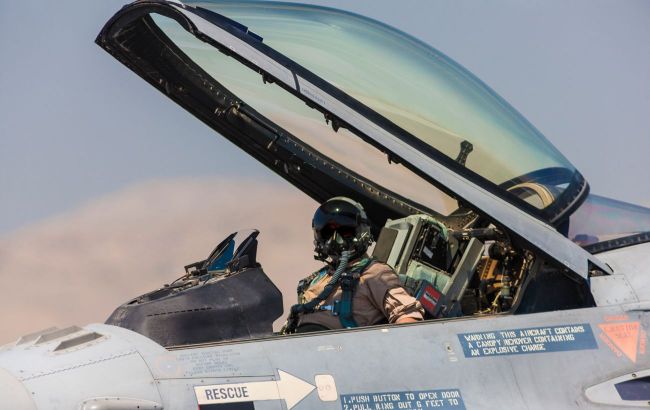Attack on Houthis in Yemen: Submarines, strikes on radars and missiles
 What is known about the strike on the Houthis in Yemen (photo: Getty Images)
What is known about the strike on the Houthis in Yemen (photo: Getty Images)
The Armed Forces of the United Kingdom and the United States carried out strikes against the Houthis with the support of Australia, Bahrain, Canada, and the Netherlands. The governments of Denmark, Germany, New Zealand, and South Korea also supported this decision.
The consequences of this attack are covered in the article by RBC-Ukraine.
During the preparation of the material, sources such as Sky News, the Twitter page of the UK Defense Minister Rishi Sunak, and CENTCOM were used.
Preparation for the strike
In November, Houthi attacks on civilian ships in the Red Sea began.
During a special meeting, UK Prime Minister Rishi Sunak discussed and approved the assignment of airstrikes against Houthi positions in Yemen.
"The Prime Minister stated that the United Kingdom will continue to take measures to protect the freedom of navigation and safeguard lives at sea," Parliament reported.
The UK Defense Minister shared a video showing the takeoff of one of the four Typhoons that delivered precision strikes on two Houthi military targets alongside US forces.
Four @RoyalAirForce Typhoons have conducted precision strikes on two Houthi military targets alongside US forces.
— Rt Hon Grant Shapps MP (@grantshapps) January 12, 2024
The threat to innocent lives and global trade has become so great that this action was not only necessary, it was our duty to protect vessels & freedom of navigation pic.twitter.com/tbN7ncJYpF
The preparations for the strike were also documented by the US Central Command (CENTCOM).
On Jan. 11 at 2:30 a.m. (Sanaa time), U.S. Central Command forces, in coordination with the United Kingdom, and support from Australia, Canada, the Netherlands, and Bahrain conducted joint strikes on Houthi targets to degrade their capability to continue their illegal and… pic.twitter.com/bR8biMolSx
— U.S. Central Command (@CENTCOM) January 12, 2024
Mission of the strike
Strikes were carried out simultaneously in several cities using both naval and aerial weaponry.
The United States and Britain conducted a series of airstrikes targeting weapon storage centers and training bases for the Houthi rebels in Yemen.
Videos depicting fires resulting from the strikes have surfaced on social media.
International reaction
Eight countries that supported the decisions of the United Kingdom and the United States have issued a joint statement.
"The explosions were carried out in accordance with the inherent right of individual and collective self-defence, consistent with the UN Charter," the statement reads.
British Prime Minister Rishi Sunak noted that the Houthis posed a threat to British and other ships and disrupted trade. This has led to an increase in the prices of raw materials.
"The Royal Air Force has carried out targeted strikes against military facilities used by Houthi rebels in Yemen. In recent months, the Houthi militia have carried out a series of dangerous and destabilising attacks against commercial shipping in the Red Sea, threatening UK and other international ships, causing major disruption to a vital trade route and driving up commodity prices"
U.S. Secretary of Defense Lloyd Austin stated that the strikes in Yemen targeted missile facilities and Houthi radar installations.
"Today's strikes targeted sites associated with the Houthis' unmanned aerial vehicle, ballistic and cruise missile, and coastal radar and air surveillance capabilities," stated U.S. Secretary of Defense Lloyd Austin.
President Joe Biden stated that these strikes against the Houthis are a response to their unprecedented attacks on international maritime vessels in the Red Sea, including the use of anti-ship ballistic missiles.
"These attacks have endangered U.S. personnel, civilian mariners, and our partners, jeopardized trade, and threatened freedom of navigation. More than 50 nations have been affected in 27 attacks on international commercial shipping. Crews from more than 20 countries have been threatened or taken hostage in acts of piracy," said Biden.

